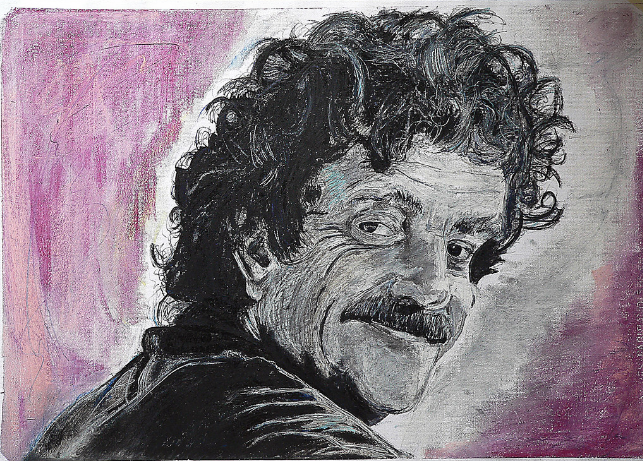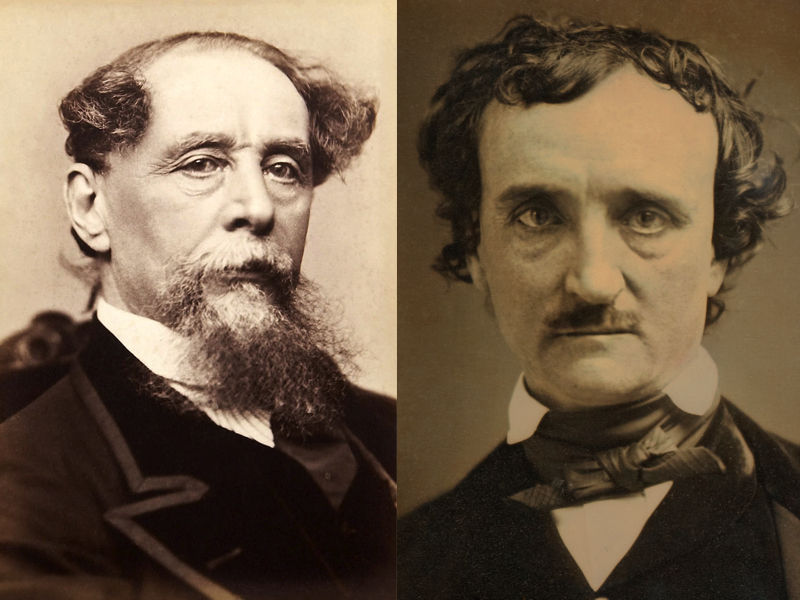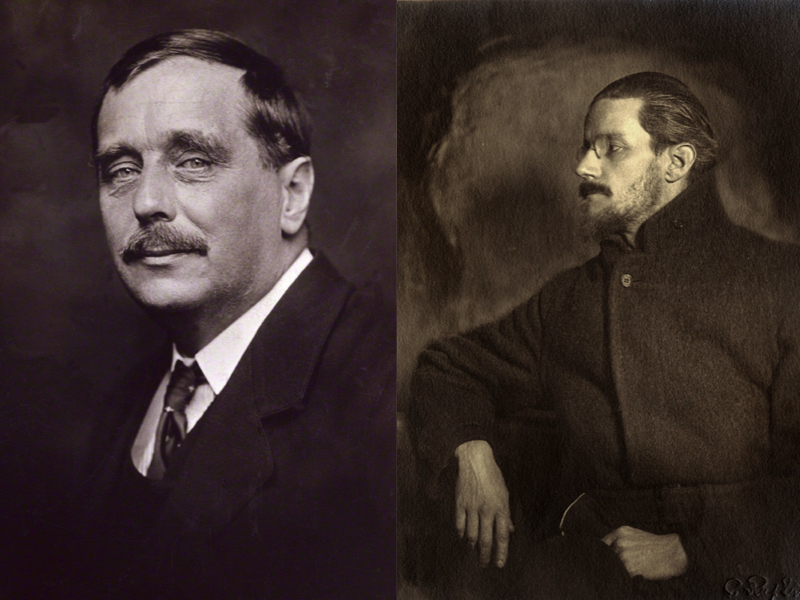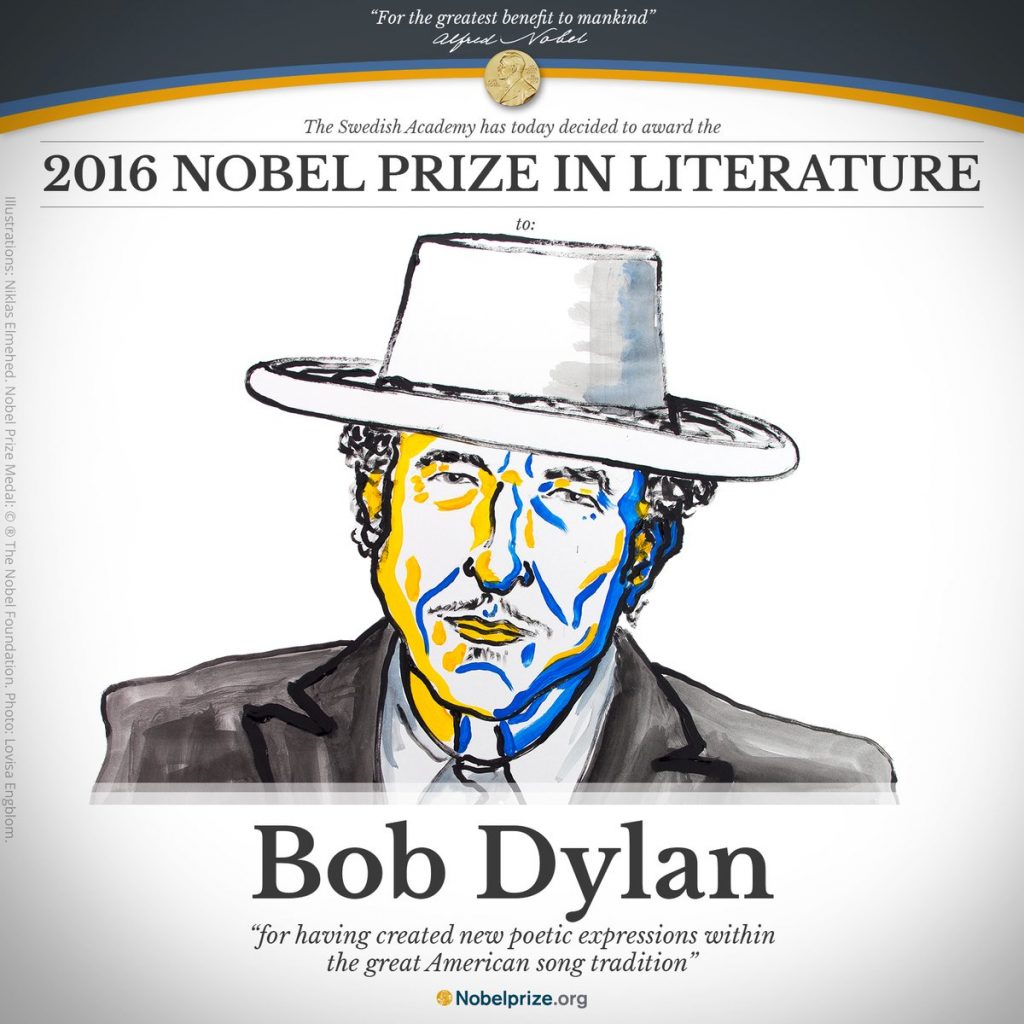
Image by Daniele Prati, via Flickr Commons
I wish I’d had a teacher who framed his or her assignments as letters…
Which is really just another way of saying I wish I’d been lucky enough to have taken a class with writers Kurt Vonnegut or Lynda Barry.
There’s still hope of a class with Barry, aka Professor Chewbacca, Professor Old Skull, and most recently, Professor Drogo. Those of us who can’t get a seat at the Wisconsin Institute for Discovery, the Omega Institute, or the Clarion Science Fiction and Fantasy Writers’ Workshop can play along at home, using assignments she generously makes available in her books and on her Near-Sighted Monkey Tumblr.
Vonnegut fans long for this level of access, which is why we are doubly grateful to writer Suzanne McConnell, who took Vonnegut’s “Form of Fiction” (aka “Surface Criticism” aka “How to Talk out of the Corner of Your Mouth Like a Real Tough Pro”) course at the Iowa Writers’ Workshop in the mid-60s.
The goal was to examine fiction from a writer’s perspective and McConnell (who is soon to publish a book about Vonnegut’s advice to writers) preserved one of her old teacher’s term paper assignments—again in letter form. She later had an epiphany that his assignments were “designed to teach something much more than whatever I thought then… He was teaching us to do our own thinking, to find out who we were, what we loved, abhorred, what set off our tripwires, what tripped up our hearts.”
For the term paper, the eighty students—a group that included John Irving, Gail Godwin, and Andre Dubus II—were addressed as “Beloved” and charged with assigning a letter grade to each of the fifteen stories in Masters of the Modern Short Story (Harcourt, Brace, 1955, W. Havighurst, editor).
(A decade and a half later, Vonnegut would subject his own novels to the same treatment.)
A noted humanist, Vonnegut instructed the class to read these stories not in an overly analytical mindset, but rather as if they had just consumed “two ounces of very good booze.”
The ensuing letter grades were meant to be “childishly selfish and impudent measures” of how much—or little—joy the stories inspired in the reader.
Next, students were instructed to choose their three favorite and three least favorite stories, then disguise themselves as “minor but useful” lit mag editors in order to advise their “wise, respected, witty and world-weary superior” as to whether or not the selected stories merited publication.
Here’s the full assignment, which was published in Kurt Vonnegut: Letters (Delacorte Press, 2012). And also again in Slate.
Beloved:
This course began as Form and Theory of Fiction, became Form of Fiction, then Form and Texture of Fiction, then Surface Criticism, or How to Talk out of the Corner of Your Mouth Like a Real Tough Pro. It will probably be Animal Husbandry 108 by the time Black February rolls around. As was said to me years ago by a dear, dear friend, “Keep your hat on. We may end up miles from here.”
As for your term papers, I should like them to be both cynical and religious. I want you to adore the Universe, to be easily delighted, but to be prompt as well with impatience with those artists who offend your own deep notions of what the Universe is or should be. “This above all …”
I invite you to read the fifteen tales in Masters of the Modern Short Story (W. Havighurst, editor, 1955, Harcourt, Brace, $14.95 in paperback). Read them for pleasure and satisfaction, beginning each as though, only seven minutes before, you had swallowed two ounces of very good booze. “Except ye be as little children …”
Then reproduce on a single sheet of clean, white paper the table of contents of the book, omitting the page numbers, and substituting for each number a grade from A to F. The grades should be childishly selfish and impudent measures of your own joy or lack of it. I don’t care what grades you give. I do insist that you like some stories better than others.
Proceed next to the hallucination that you are a minor but useful editor on a good literary magazine not connected with a university. Take three stories that please you most and three that please you least, six in all, and pretend that they have been offered for publication. Write a report on each to be submitted to a wise, respected, witty and world-weary superior.
Do not do so as an academic critic, nor as a person drunk on art, nor as a barbarian in the literary market place. Do so as a sensitive person who has a few practical hunches about how stories can succeed or fail. Praise or damn as you please, but do so rather flatly, pragmatically, with cunning attention to annoying or gratifying details. Be yourself. Be unique. Be a good editor. The Universe needs more good editors, God knows.
Since there are eighty of you, and since I do not wish to go blind or kill somebody, about twenty pages from each of you should do neatly. Do not bubble. Do not spin your wheels. Use words I know.
poloniøus
McConnell supplied further details on the extraordinary experience of being Vonnegut’s student in an essay for the Brooklyn Rail:
Kurt taught a Chekhov story. I can’t remember the name of it. I didn’t quite understand the point, since nothing much happened. An adolescent girl is in love with this boy and that boy and another; she points at a little dog, as I recall, or maybe something else, and laughs. That’s all. There’s no conflict, no dramatic turning point or change. Kurt pointed out that she has no words for the sheer joy of being young, ripe with life, her own juiciness, and the promise of romance. Her inarticulate feelings spill into laughter at something innocuous. That’s what happened in the story. His absolute delight in that girl’s joy of feeling herself so alive was so encouraging of delight. Kurt’s enchantment taught me that such moments are nothing to sneeze at. They’re worth a story.
via Slate
Related Content:
Kurt Vonnegut Diagrams the Shape of All Stories in a Master’s Thesis Rejected by U. Chicago
In 1988, Kurt Vonnegut Writes a Letter to People Living in 2088, Giving 7 Pieces of Advice
Kurt Vonnegut’s 8 Tips on How to Write a Good Short Story
Kurt Vonnegut Urges Young People to Make Art and “Make Your Soul Grow”
Ayun Halliday is an author, illustrator, theater maker and Chief Primatologist of the East Village Inky zine. Her play Zamboni Godot is opening in New York City in March 2017. Follow her @AyunHalliday.








